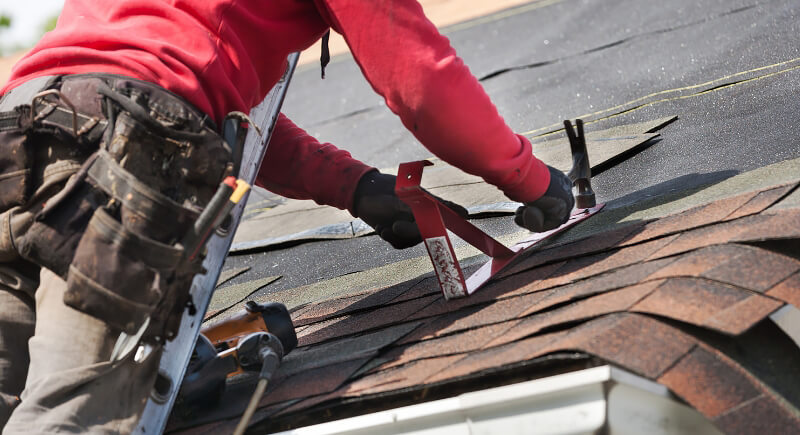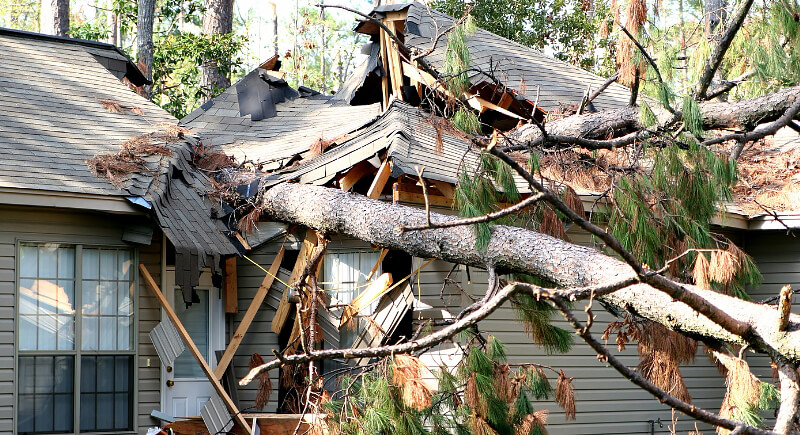Contractor Scams You Should Know (and How to Stop Them)
Hiring a contractor should make life easier, not harder. Too often, though, what begins as a repair or renovation turns into a costly mistake. Scammers count on people being rushed, stressed, or eager for a bargain, and that’s when they strike. The upside is that most of their tactics follow predictable patterns. Once you learn to recognize them, they’re easy to shut down before any damage is done.
The Leftover Materials Pitch

Credit: Getty Images
A friendly contractor might tell you they just wrapped up a job down the street and have some leftover asphalt or roofing materials they can use on your place for a “discounted price.” It sounds like a lucky break, but it’s usually a setup for poor-quality work, inflated costs, or a quick vanishing act once they get paid. Skip the doorstep deals and stick with licensed pros who give written estimates because cheap fixes rarely stay cheap.
The Massive Deposit Vanishes

Credit: Canva
Some scammers demand half or more of the project cost upfront by insisting that they need it for “materials.” Once the money changes hands, the work never starts or quickly falls apart. It is smart to keep deposits minimal, ideally under 15 percent, and to pay in stages tied to progress.
The “No Permit Needed” Lie

Credit: Photo Images
If a contractor dismisses permit requirements, that is a red flag because legitimate professionals will never skip such essential steps. They may be cutting corners or avoiding oversight. Unpermitted work can lead to hefty fines and property issues later, and you will be responsible. Before work begins, verify local regulations, confirm your contractor’s license is active, and ask for copies of all required permits.
The Rush-and-Sign Deal

Credit: Getty Images
Scammers use pressure to make you act fast. They claim a deal will vanish unless you sign right away and hope you skip the details or ignore better offers. That urgency is part of the trick. A reliable contractor lets you review everything at your own pace. Get a few estimates and read every clause before you agree or pay anything.
The Financing Trap

Credit: iStockphoto
A contractor may recommend a lender after giving you a high quote. It seems helpful until you realize the loan carries extreme interest or hidden terms. Once the funds clear, the contractor may disappear or stop showing up. The safest move is to handle financing on your own through a verified bank or credit union.
The Free Inspection Surprise

Credit: Canva
An uninvited contractor offers to inspect your roof, windows, or foundation “at no charge.” After a quick look, they dramatically “find” serious damage needing immediate attention. Some even cause the damage themselves. Decline unsolicited inspections and contact a trusted, verified local company if you suspect issues.
The Lowball Switcheroo

Credit: Canva
That shockingly low estimate might look tempting, but it is often bait. Once work starts, “unexpected” problems appear, ballooning the final price far beyond your budget. Compare multiple bids, ask for a detailed cost breakdown, and require written change orders for any added expenses. The cheapest quote rarely ends up being the best deal once the dust settles and the bills come in.
The Cash-Only Scheme

Credit: iStockphoto
If a contractor insists on being paid in cash, it is a major warning sign. Cash leaves no record, recourse, and guarantee if they disappear mid-job. Paying by credit card or check provides fraud protection and a clear way to document every transaction. Keep receipts, track invoices, and never let anyone rush you into handing over money without proof of progress.
The “Handshake Contract” Disaster

Credit: Getty Images
Paperwork protects everyone involved, especially you. Skipping a written agreement can spell trouble quickly. Without clear terms, scammers can raise prices, cut corners, or claim they promised nothing. Every project, no matter how small, needs a signed contract detailing the scope, timeline, materials, costs, and warranty. Leave no blank spaces and make sure both parties have copies.
The Door-to-Door Deal Maker

Credit: Getty Images
They knock, introduce themselves as a contractor “working nearby,” and promise unbeatable rates. In truth, legitimate professionals rarely go door to door searching for work. Before hiring anyone who shows up uninvited, look them up online, check their license number, and verify their insurance. If they dodge questions or refuse to give references, kindly close the door and move on.
The Insurance Claim Hijack

Credit: Photo Images
After a storm, a contractor may offer to “handle” your insurance claim for you and then file inflated or false paperwork in your name. In some cases, they take the insurer’s payout and never finish the job. Keep control by talking directly with your insurance company and never signing over your claim rights.
The Post-Disaster Savior

Credit: Getty Images
When hurricanes, floods, or fires hit, so do traveling contractors promising quick help. Some are legitimate, but many vanish after deposits. Always confirm they are licensed in your state, ask for local references, and avoid on-the-spot commitments. Disaster recovery attracts both heroes and hustlers, so take time to tell them apart before signing any repair contracts.
The Reference Runaround

Credit: Getty Images
Good work leaves a trail you can verify, and bad work hides in silence. A trustworthy contractor proudly shares contactable references and project photos. Scammers, on the other hand, dodge, delay, or provide vague stories if you ask about their portfolio. Check recent clients within the past year or read verified online reviews. If a contractor resists this simple request, assume there is a reason.
The Materials Markup Trick

Credit: Canva
A contractor might promise top-quality materials but swap them for cheaper ones once work starts. Some also raise prices midway, blaming sudden cost increases. Prevent this by listing every material in the contract with its brand, grade, and quantity. Check receipts or deliveries to make sure you get exactly what you paid for.
The Fake License Move

Credit: Canva
A polished website and printed logo do not prove legitimacy. Some scammers use expired or stolen license numbers to appear professional. Protect yourself by checking credentials through your state’s licensing board and confirming active liability and workers’ compensation insurance. Do not just take photos of documents; call the agency to verify. Real contractors welcome questions, while fakes look for the nearest exit.